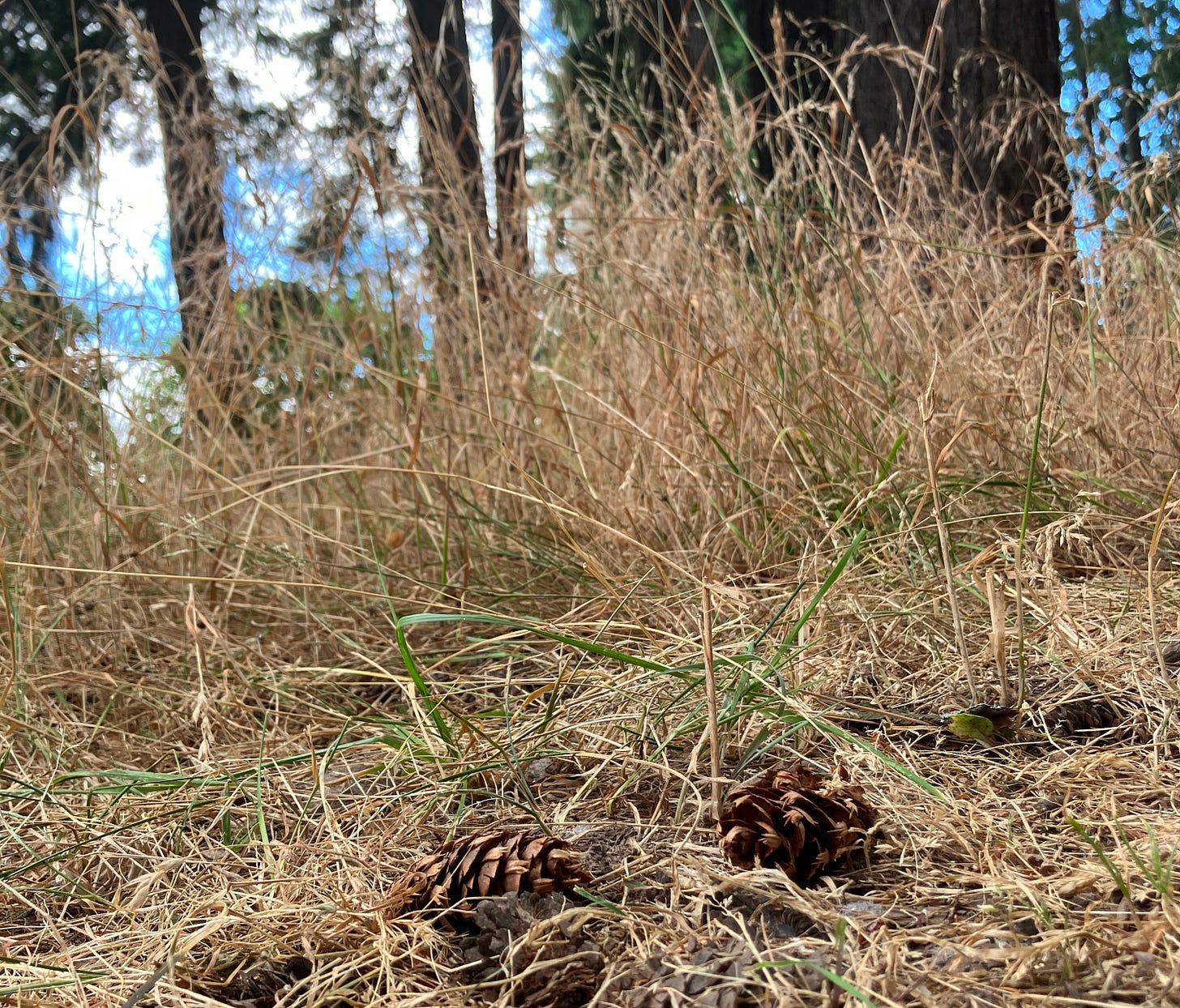Quick Response to Aloha Grass Fire Prevents Damage to Homes
Plus TVF&R tips to prevent fire and heat-related illness during this summer's hot, dry season

The quick response from firefighters this past Fourth of July weekend to a grass fire in Aloha’s Arnold Park protected nearby homes. “Whether you're in the countryside or the suburbs, fire risk is real,” Tualatin Valley Fire and Rescue wrote on their social media this week. “Thankfully, fire crews got there fast and kept it from spreading to homes and trees.”
July and August are expected to be hot and dry, increasing fire risks. TVF&R says following these tips will help prevent wildfires:
Use outdoor equipment (mowers, trimmers, chainsaws) early in the day — not during peak heat.
Never toss cigarettes on the ground or out car windows. Use proper containers.
Avoid parking over dry grass — hot exhaust pipes can ignite it. Properly maintain your vehicle and check for loose or hanging parts (mufflers, tow bars, or trailer part, etc.).
Adhere to the High-Fire Danger Burn Ban in effect across TVF&R’s jurisdiction. Details at www.tvfr.com/outdoorburning
In addition to increased fire risks, this part of the summer season’s hot temperatures can have health risks. Temperatures are expected to reach into the 90s this weekend, July 12 and 13. Washington County has an interactive map of free splash pads and indoor areas to get cool for those looking for a place to beat the heat.
TVF&R responders want to remind individuals of all ages to limit their exposure to the sun and heat and take steps to prevent heat-related illnesses.
TVF&R responders want to remind individuals of all ages to limit their exposure to the sun and heat and take steps to prevent heat-related illnesses. Even if one does not have any additional health concerns, heat can add stress to anyone’s body while performing daily activities and exercise. Working out earlier in the day and shortening one’s workout to compensate for the heat will limit that stress.
“Avoid getting sunburns. People with sunburns tend to dehydrate,” TVF&R says. “Drinking plenty of water and cool fluids and avoiding alcohol will help to prevent dehydration and stabilize blood sugar levels. Don’t wait until you’re thirsty to drink.”
Warning signs of heat exhaustion include heavy sweating, paleness, muscle cramps, weakness, dizziness, headache, and fainting.
Signs of heat stroke may include high body temperature; red, hot, dry skin (no sweating); rapid pulse; headache; dizziness; nausea; confusion; or unconsciousness.
TVF&R says if you see these signs, seek medical attention and attempt to cool the person with a cool bath or shower, or find a shady or air-conditioned location.
The Aloha Free Press is a volunteer effort to provide Aloha with quality community journalism. Support through financial donations - whether one time or monthly - helps keep the work going. Thank you for your support and for being an AFP reader!




